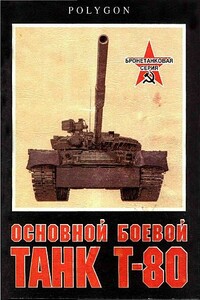Проективный словарь гуманитарных наук - [318]
All the entries are connected by a system of cross-references, which renders the dictionary readable as a hypertext, a standalone work in the “humanities genre” – not, that is, in a particular discipline, but within the humanities field as a whole. Other writings of mine to which the dictionary refers may be seen as this work’s outer circle, a “beyond” that expands its scope. The dictionary introduces new concepts and terms into the semiotic system of culture through the act of their manifestation – and, as a “self-propagating logos,” prompts their further development in new texts created on the basis of this dictionary or according to its motifs.
ANNOTATION
The Dictionary offers a systematic description of concepts and terms in such fields of the humanities as philosophy (including ethics and aesthetics), literary, cultural and religious studies, and linguistics, as well as humanistic approaches to nature, history, society, and technology. The Dictionary contains 440 entries distributed among 14 thematic sections (in alphabetical order). Special attention is given to the development of new concepts and terms that reflect cultural and social processes of the 21st century and methods of intellectual creativity.
The author and compiler of the Dictionary is the prominent Russian-American cultural scholar, philosopher, and philologist Mikhail Epstein, professor of Emory University (USA) and honorary professor of Durham University (Great Britain). His unique approach enables a significant broadening of the conceptual system of the humanities: the linkage of various disciplines with one another, and with the creative practices arising on their theoretical basis. The ictionary expands the constructive potential of the humanities, revealing their capacity to generate new intellectual, literary, and artistic movements, cultural institutions, and even spiritual communities. Many terms and concepts initially proposed by the author have already entered general usage in cultural and literary studies. The book aims to develop innovative and imaginative ways of thinking on the part of researchers and students. It is addressed to all those interested in new perspectives on the humanities, as both the science and the art of human self-awareness and self-transformation.
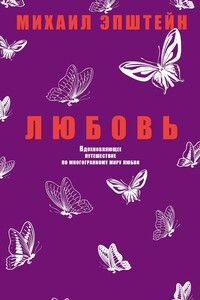
Многомерный мир любви раскрывается в книге Михаила Эпштейна с энциклопедической широтой и лирическим вдохновением. С предельной откровенностью говорится о природе эротического и сексуального, о чувственных фантазиях, о таинствах плотского знания. Книга богата афористическими определениями разных оттенков любовного чувства. Автор рассматривает желание, наслаждение, соблазн, вдохновение, нежность, боль, ревность, обращась к идеям диалогической и структуральной поэтики, экзистенциальной психологии, философской антропологии.
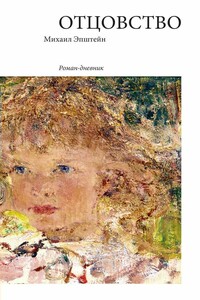
Автор книги «Отцовство» — известный философ и филолог, профессор университетов Дарема (Великобритания) и Эмори (Атланта, США) Михаил Эпштейн. Несмотря на широкий литературный и интеллектуальный контекст, размышления автора обращены не только к любителям философии и психологии, но и ко всем родителям, которые хотели бы глубже осознать свое призвание. Первый год жизни дочери, «дословесный» еще период, постепенное пробуждение самосознания, способности к игре, общению, эмоциям подробно рассматриваются любящим взором отца.
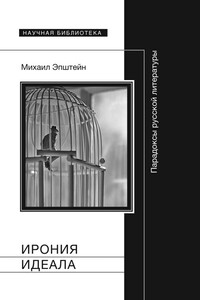
Русская литература склонна противоречить сама себе. Книга известного литературоведа и культуролога Михаила Эпштейна рассматривает парадоксы русской литературы: святость маленького человека и демонизм державной власти, смыслонаполненность молчания и немоту слова, Эдипов комплекс советской цивилизации и странный симбиоз образов воина и сновидца. В книге прослеживаются «проклятые вопросы» русской литературы, впадающей в крайности юродства и бесовства и вместе с тем мучительно ищущей Целого. Исследуется особая диалектика самоотрицания и саморазрушения, свойственная и отдельным авторам, и литературным эпохам и направлениям.

В книге рассказывается история главного героя, который сталкивается с различными проблемами и препятствиями на протяжении всего своего путешествия. По пути он встречает множество второстепенных персонажей, которые играют важные роли в истории. Благодаря опыту главного героя книга исследует такие темы, как любовь, потеря, надежда и стойкость. По мере того, как главный герой преодолевает свои трудности, он усваивает ценные уроки жизни и растет как личность.
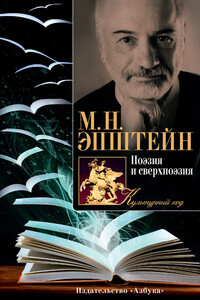
Михаил Наумович Эпштейн – российский философ, культуролог, литературовед, лингвист, эссеист, лауреат премий Андрея Белого (1991), Лондонского Института социальных изобретений (1995), Международного конкурса эссеистики (Берлин – Веймар, 1999), Liberty (Нью-Йорк, 2000). Он автор тридцати книг и более семисот статей и эссе, переведенных на два десятка иностранных языков. Его новая книга посвящена поэзии как особой форме речи, в которой ритмический повтор слов усиливает их смысловую перекличку. Здесь говорится о многообразии поэтических миров в литературе, о классиках и современниках, о тех направлениях, которые сформировались в последние десятилетия XX века.
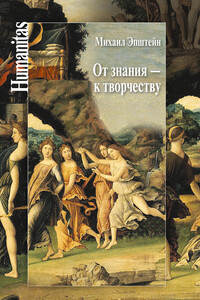
М.Н. Эпштейн – известный филолог и философ, профессор теории культуры (университет Эмори, США). Эта книга – итог его многолетней междисциплинарной работы, в том числе как руководителя Центра гуманитарных инноваций (Даремский университет, Великобритания). Задача книги – наметить выход из кризиса гуманитарных наук, преодолеть их изоляцию в современном обществе, интегрировать в духовное и научно-техническое развитие человечества. В книге рассматриваются пути гуманитарного изобретательства, научного воображения, творческих инноваций.

Настоящее издание уникально тем, что объединяет в себе все вопросы, которые возникают в тот или иной момент в каждой без исключения семье.Первый раздел книги посвящен брачным договорам – автор подробно останавливается на каждом пункте договора, рассматривает различные виды договоров и приводит их образцы, а также дает рекомендации по самостоятельному составлению договора при наличии нестандартных условий и пожеланий. Второй раздел книги полностью посвящен регистрации – от рождения и регистрации ребенка, получения им гражданства до переезда на другое место жительства.
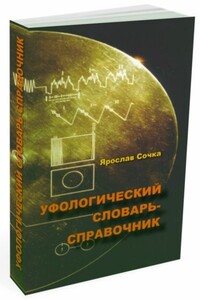
Перед Вами уникальное в своем роде издание — уфологический словарь-справочник, в котором приведены статьи о различных аспектах уфологии (наука об НЛО — неопознанных летающих объектах). Автор-составитель (проблему НЛО изучает с 1989 года) преследовал цель описать и упомянуть практически все ходовые термины и словосочетания из уфологии, открытия в этой молодой и спорной науке, указать все разнообразие уфологических гипотез и дискуссий и тем самым классифицировать уфологические знания и опыт, что весьма необходимо в современной "разрозненной" уфологии.
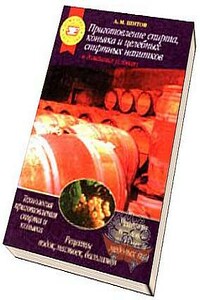
Данная книга раскрывает практические навыки переработки крахмального и сахаросодержащего сырья для приготовления спирта и крепких напитков в домашних условиях. В книге дано описание этапов получения спирта, а также приборов для перегонки и ректификации. Описаны способы получения различных веществ для ароматизации напитков. Приведенные рецепты позволяют приготовить ароматные крепкие напитки и натуральные вина с высокими вкусовыми качествами. В книге содержатся рецепты целебных настоек, которые могут успешно применяться для улучшения самочувствия.Книга предназначена для широкого круга читателей, интересующихся приготовлением домашних вин и целебных настоек, а также использованием продуктов сада и огорода в домашнем хозяйстве.
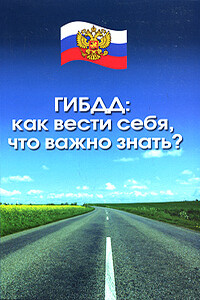
Ни для кого не секрет, что с каждым днем все чаще и чаще водители сталкиваются с произволом и превышением должностных полномочий сотрудниками ГИБДД.Отчасти это происходит по причине правовой безграмотности водителей, а порой и от нежелания водителей вступать в диалог с представителями власти и отстаивать свои права. Цель данного издания не изменить текущую ситуацию, а научить водителей элементарным «правилам поведения», дать основные и неотъемлемые знания, которые поистине можно приравнять по значимости к знаниям ПДД.В книге раскрываются типичные нарушения сотрудниками ГИБДД установленных законодательством правил и способы защиты от подобных действий, даются советы, как поступить в той или иной ситуации.
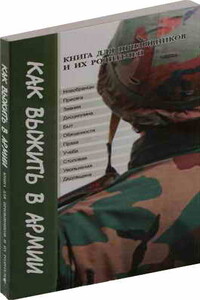
Книга содержит полезную практическую информацию для призывников и их близких, которая поможет получить правильное представление о прохождении службы в Вооруженных силах, о трудностях, которые можно ожидать и о том, как с ними справиться. Автор в увлекательной форме рассказывает о разных сторонах армейской жизни. Книга вызовет интерес у широкого круга читателей.
